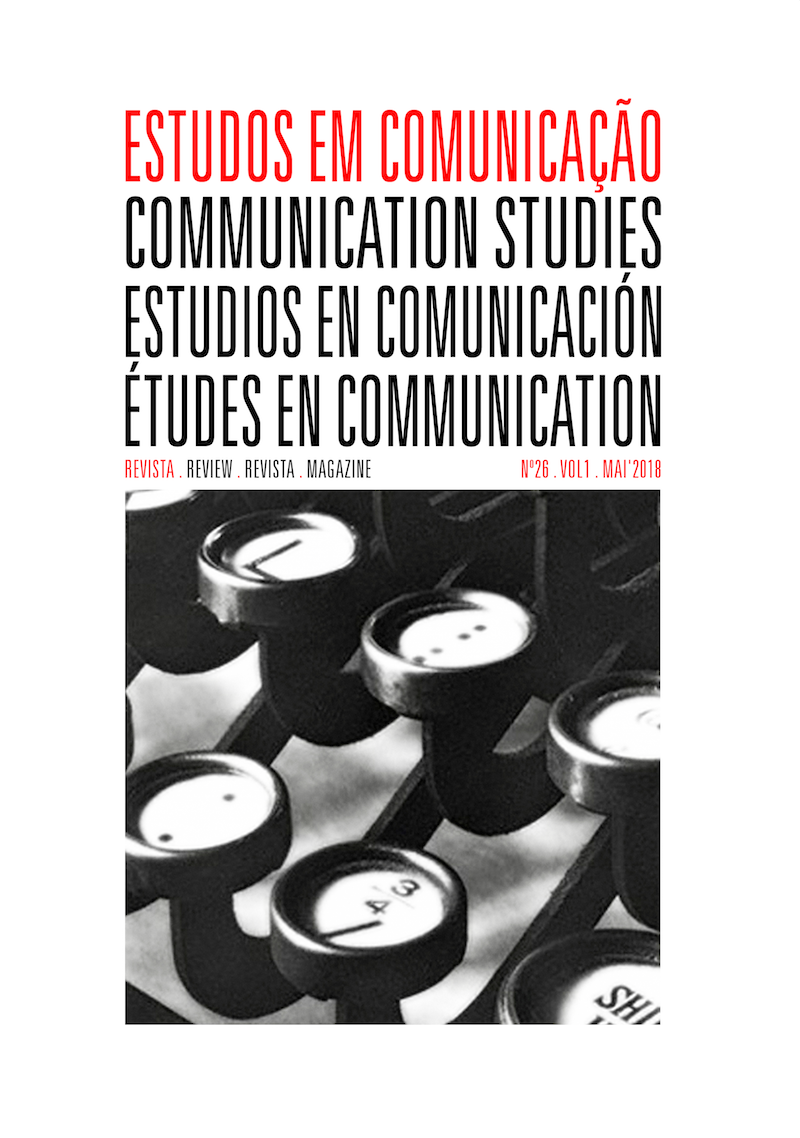Between convincing and admiring: The Universal Church’s discursive strategies present in the UCKG programming and its campaign “I am Universal”.
Keywords:
Universal Church of the Kingdom of God, discourse analysis, UCKG programming, I am UniversalAbstract
This paper introduces a comparative examination of two media products, which have been delivered by the Universal Church of the Kingdom of God (UCKG): An advertising piece for the "I am Universal"campaign, available on the internet and a believer’s testimony, which has been publicized in one of the shows the UCKG programming is comprised of (set of shows exhibited by the church during the early hours), broadcast in the Brazilian State of Minas Gerais. Both objects of study share the history of Cláudio Soares, this ex-homeless man who has become a well-succeeded entrepreneur. Making use of the Franco-Brazilian Discourse Analysis of Eni Orlandi and Michel Pêcheux as our theoretical referential, additionally to elements from the Aristotelian Rhetoric, we aimed at identifying the various discursive strategies that the UCKG deploys, based on these two enunciating contexts. Given these points, it has been observed that such strategies differ, according to the specific objectives of each product and the audience for which they are intended.
References
Carvalho, C. A. de & Sousa, M. T. de (2014). Narrar, lembrar, esquecer: os 35 anos da Igreja Universal na Folha Universal e na Folha de Portugal. Estudos em Comunicação, (17), 143- 166.
Castro, J. & Duarte, A. (2012, junho 29). Censo: Igreja Universal perde adeptos, e Poder de Deus ganha. O Globo. Disponível: https://goo.gl/LROSZM. Acesso: 31/07/2016.
Mariano, R. (1999). NeoPentecostais: sociologia do novo pentecostalismo no Brasil. São Paulo: Loyola.
Modesto, C. M. (2012). 34 anos de evangelismo eletrônico. Observatório da Imprensa. Disponível em: https://goo.gl/0kQ0ow. Acesso: 12/08/2016.
Oliveira, J. R. &, Sousa, M. T. de (2014). O fiel como garoto propaganda: análise discursiva de uma campanha publicitária da Igreja Universal do Reino de Deus. Novos Olhares, (3), 2.
Osakabe, H. (1999). Argumentação e discurso político. São Paulo: Martins Fontes.
Orlandi, E. P. (2005). Análise de discurso: princípios e procedimentos. Campinas: Pontes.
Oro, A. P. (2007). Intolerância religiosa e reações afro no Rio Grande do Sul. In V. G. da Silva (org), Intolerância religiosa: impactos do neopentecostalismo no campo religioso afro- brasileiro. São Paulo: Edusp.
Ricoeur, P. (1991). Do texto a acção: ensaios de hermenêutica II. Porto: Res.
Ricoeur, P. (2010). Tempo e narrativa: a intriga e a narrativa histórica – Tomo I. São Paulo: Martins Fontes.
Sousa, M. T. de. (2014). As narrativas do reino: análise narrativa de programas televisivos da Igreja Universal nas madrugadas mineiras. Dissertação de Mestrado em Comunicação Social. Programa de pós-graduação em Comunicação Social da Universidade Federal de Minas Gerais (UFMG), Belo Horizonte, Brasil.
Downloads
Published
Issue
Section
License
Estudos em Comunicação/Communication Studies is an Open Access journal. All its content is freely available without charge to the user or his institution. Users are allowed to read, download, copy, distribute, print, search, or link to the full texts of the articles in this journal without asking prior permission from the publisher or the author. Estudos em Comunicação, by Labcom, is licensed under a Creative Commons Atribuição-NãoComercial-SemDerivações 3.0 Unported License. By submitting your work to Estudos em Comunicação/Communication studies you confirm you are the author and own the copyright, that the content is original and previously unpublished, and that you agree to the licensing terms.


